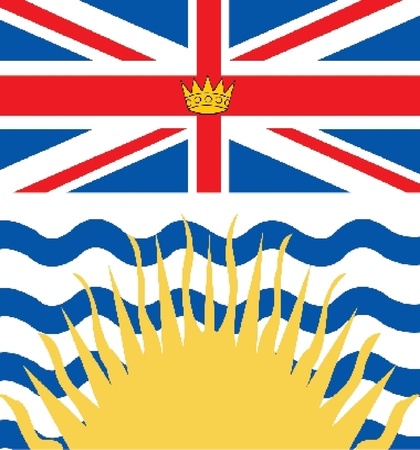Introduction to Numerology in British Culture
Numerology, the ancient study of numbers and their mystical influence on human affairs, has long held a subtle yet enduring presence within British culture. Though often seen as a fringe or esoteric pursuit, numerology’s roots can be traced back to early civilisations, and its principles have quietly woven themselves into the fabric of the United Kingdom’s traditions and customs. In Britain, numbers are more than mere digits; they are imbued with symbolism, superstitions, and even a sense of destiny—particularly when it comes to names. The concept that names carry vibrational energies that can shape an individual’s fate resonates through both historical narratives and contemporary practices. This is especially true within the context of royal lineage, where names are not chosen lightly but with great deliberation and an eye towards heritage, legacy, and occasionally the subtle whispers of numerological influence. Exploring how numerology intersects with the monarchy allows us to better appreciate how numbers have played a role in shaping not only personal identities but also national traditions, reflecting both continuity and change across generations.
2. A Brief History of Royal Naming Customs
The tradition of naming British monarchs is anything but arbitrary. Across the centuries, the process has reflected not only the personal preferences of reigning families but also broader societal shifts and prevailing values. Early on, royal names were often inherited from forebears, reinforcing dynastic legitimacy and continuity. For instance, the recurrent use of names such as Henry, Edward, and Elizabeth underscored a connection to revered predecessors and established authority.
However, naming customs have evolved in response to changing times. The Norman Conquest introduced French names like William and Richard, while later periods saw an embrace of names from continental Europe due to intermarriage with foreign royal houses. The Victorian era marked another turning point as Queen Victoria selected names for her offspring that reflected both familial ties across Europe and the growing importance of public image.
Throughout history, shifts in tradition can be traced back to various influences—political alliances, religious reforms, or the desire to project a modern identity. The House of Windsor’s adoption of more “British-sounding” names in the early 20th century offers a prime example; this move distanced the monarchy from its German roots amidst wartime sentiment and reinforced national unity.
Royal Names Through the Ages
| Era | Common Names | Notable Influences |
|---|---|---|
| Medieval | Henry, Edward, Richard | Dynastic tradition, religious saints |
| Tudor & Stuart | Mary, James, Charles | Reformation, European alliances |
| Georgian & Victorian | George, Victoria, Albert | Continental influence, public image |
| Modern (Windsor) | Elizabeth, Charles, William | National identity, media scrutiny |
The Role of Societal Values
The selection of royal names has mirrored evolving societal priorities—from affirming religious legitimacy in earlier centuries to emphasising inclusivity and relatability today. Modern royals are increasingly mindful of public perception when choosing names for their children, balancing respect for heritage with an awareness of contemporary British culture.

3. Numerological Patterns in Royal Names
When examining the lineage of the British monarchy, numerology reveals some fascinating patterns that echo both folklore and historical records. The recurrence of certain numbers in royal names is far from coincidental; it reflects a deeper connection to tradition, symbolism, and even superstition within the monarchy.
The Power of Three and Seven
Numbers such as three and seven have long been regarded as auspicious in British culture. The name “George,” for instance, was borne by six British kings, but it’s the third—George III—whose reign stands out in popular memory due to its transformative impact on British history. The repetition of names like Henry (eight monarchs) and Edward (eight monarchs) also seems to underscore an unconscious adherence to numerological significance. In folklore, three represents harmony and wisdom, while seven has connotations of luck and divine right—qualities sought after by many royal houses.
Symbolism and Tradition
Royal naming conventions often draw upon the symbolism attached to certain numbers. For example, the name Elizabeth—meaning “oath of God”—has twice crowned a queen whose reign was marked by longevity and stability. The pairing of names with significant numbers is believed to offer protection and continuity. This is evident in the recurring use of regnal numbers (e.g., Elizabeth II), which not only denote succession but also reinforce a sense of historical destiny.
Folklore Versus Historical Documentation
While folklore weaves tales of kings and queens consulting astrologers or wise men for auspicious names, historical documentation shows a more pragmatic approach: names were chosen to honour predecessors or cement alliances. However, numerology still creeps into official records—for instance, coronation dates are sometimes selected based on numerological advice, believed to bring luck or avert misfortune for the new monarch.
In sum, whether through deliberate choice or cultural osmosis, numerological themes pervade the naming traditions of the British monarchy. These patterns help sustain an aura of mystique and continuity that resonates with both public sentiment and royal self-image across generations.
4. Famous Monarchs and Their Numerological Associations
Throughout British history, the names of monarchs have been more than just titles—they have sometimes carried numerological weight that fascinates both scholars and the public. In this section, we examine a few key royal figures whose names are notable for their numerological resonance, alongside some curious stories and how these associations have influenced public perception.
Numerology in Royal Names: A Closer Look
The tradition of repeating royal names—such as Elizabeth, George, and Victoria—has allowed patterns to emerge over generations. Numerologists often reduce names to single digits to explore character traits or destinies. Here’s a concise table that demonstrates the numerological value of selected monarchs names and explores their reputational impact:
| Monarch | Name Value | Key Numerological Meaning | Anecdotes & Public Perception |
|---|---|---|---|
| Queen Elizabeth II | 7 (E+L+I+Z+A+B+E+T+H = 88; 8+8=16; 1+6=7) | Wisdom, introspection, spiritual insight | Seen as wise, calm, and dignified; her long reign is often attributed to her ‘destined’ stability |
| King George VI | 1 (G+E+O+R+G+E = 57; 5+7=12; 1+2=3; VI = 6; 3+6=9) | Leadership, new beginnings, independence | Became king unexpectedly during a national crisis, embodying resilience and personal growth |
| Queen Victoria | 4 (V+I+C+T+O+R+I+A = 103; 1+0+3=4) | Order, discipline, practicality | Her reign was marked by expansion and an emphasis on family values and duty |
Curious Anecdotes in Royal Numerology
The name “Elizabeth” has appeared twice in British monarchy history, with both queens remembered for eras of significant change—the Tudor Elizabeth presided over the English Renaissance while the modern Elizabeth II witnessed sweeping technological and social transformation. Some numerologists argue that the recurrence of the number seven in their names hints at an almost fated propensity for leadership during pivotal moments.
Cultural Reflection: The Public’s Fascination
The British public has long engaged with royal numerology in both jest and earnestness. When a new heir is named, speculation abounds—not just about tradition but what numerological portents might be attached to the name. Newspapers occasionally feature light-hearted analyses around royal christenings or coronations, reflecting a blend of superstition and affection unique to British culture.
5. Contemporary Perspectives: Modern Royals and Naming Choices
In recent decades, the British Royal Family’s approach to naming has subtly evolved, reflecting both continuity and change within a rapidly modernising society. The births of Prince William and Catherine’s children—George, Charlotte, and Louis—drew widespread public interest not only for their historical resonance but also for the potential numerological significance encoded in their names. Traditionally, royal names were selected from a relatively small pool, rich with dynastic and saintly associations; however, there is growing curiosity as to whether contemporary royals are consciously incorporating numerology or diverging from the established conventions. For example, the choice of “George” for the third in line to the throne hearkens back to six previous kings, tying Prince George directly to a storied legacy. The name “Charlotte” honours both family (Queen Charlotte, wife of George III) and contemporary figures (her grandmother, Diana Spencer), while “Louis,” though less common among British monarchs, echoes French and European connections and resonates with Prince Philip’s uncle Lord Louis Mountbatten.
Despite this apparent adherence to tradition, some observers have noted subtle shifts. The Duke and Duchess of Sussex’s choice of “Archie Harrison” for their son sparked conversation; “Archie” does not have deep royal precedent, suggesting a more personal touch or perhaps an inclination towards names carrying positive numerological energies rather than strict historical lineage. Similarly, titles bestowed upon new members of the Royal Family continue to be scrutinised for their symbolic meanings and any numerological undertones they might possess.
It remains an open question how much influence numerology truly holds over these decisions versus familial sentiment or public expectation. What is clear is that each new royal birth reignites discussions about tradition versus modernity in royal naming practices—and whether subtle numerological considerations are quietly shaping the monarchy’s future identity.
6. Public Fascination: Numerology in the Media and Popular Culture
British media has long exhibited a curious fascination with numerology, particularly in relation to the royal family’s names. Tabloids, broadsheets, and television programmes frequently feature segments that speculate on the ‘hidden meanings’ behind newly announced royal baby names or major events such as coronations and weddings. This engagement is not merely frivolous; it reflects a wider cultural appetite for tradition blended with a playful openness to the mystical. When Prince George was born, for example, several newspapers ran stories decoding the numerical value of his name according to both Pythagorean and Chaldean systems, drawing historical parallels with previous monarchs named George. The publics reaction ranges from amused scepticism to genuine intrigue, with online forums and social media threads regularly lighting up with amateur numerological analyses after royal announcements.
This phenomenon reveals much about British cultural attitudes towards monarchy and symbolism. On one hand, there is a deep-seated respect for history and ceremony—numerology provides an additional layer of narrative to royal traditions, giving familiar rituals a fresh twist. On the other hand, the willingness to engage with numerology suggests a collective sense of playfulness and irony that characterises much of British popular culture. It’s not uncommon for coverage to blend tongue-in-cheek commentary with earnest speculation, acknowledging numerology’s lack of scientific standing while still delighting in its possibilities.
Ultimately, this dynamic between media coverage, public participation, and numerological intrigue highlights how modern Britain negotiates its relationship with both rationality and ritual. Royal names become more than mere identifiers—they are canvases onto which hopes, anxieties, and cultural values are projected. Through the lens of numerology, each new chapter in the monarchy’s story invites both scrutiny and celebration from a nation that remains as captivated by its past as it is curious about its future.


